
June 15, 2018
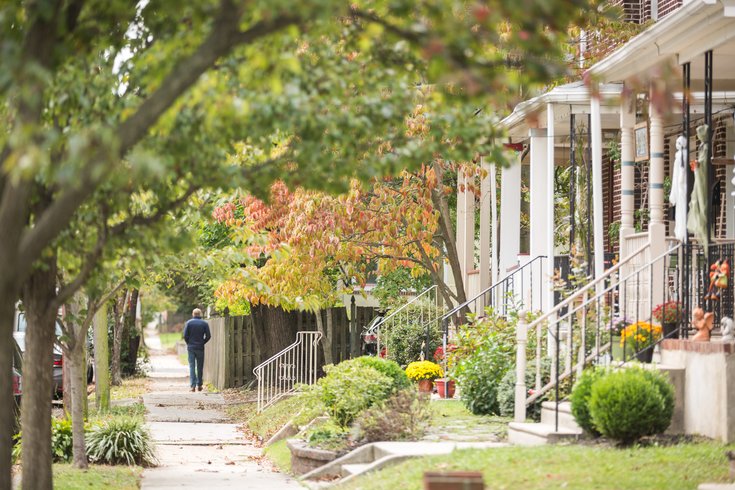 Thom Carroll/PhillyVoice
Thom Carroll/PhillyVoice
In Collingswood, N.J., a pitched battle has broken out over the merits of short-term rentals like Airbnb.
Collingswood, a small, revitalized borough with a quaint downtown shopping district a few miles to the east of Philadelphia, is not the sort of place frequented by tourists.
With its proximity to Philly, its major events and area hospitals, it’s the sort of place that a few dozen residents deemed perfect to offer short-term lodging, mostly commonly through the online service Airbnb.
For the past several years, they've welcomed parents coming to town to see their children compete in Cooper River regattas, traveling nurses and medical students on rotation at Cooper University Hospital, which is a short PATCO ride away.
Due to an unusual battle between Airbnb hosts and borough government, however, those lodging opportunities have dried up, and may never come back.
On one side sit Airbnb hosts who rely on the extra cash to cover bills or, quite simply, yearn for human contact as widowed empty nesters or “hippies” who prefer being around others instead of the loneliness of an empty home.
On the other, the borough's zoning commission, mayor and a commissioner don’t seem very interested in establishing an ordinance that would allow for the revival of Airbnb opportunities that cease-and-desist letters halted in recent months.
In a new-economy battle which extends beyond Collingswood, places like Boston are cracking down on similar arrangements amid concerns about their impact on the housing market. This is happening despite historical parallels to “single-room-occupancy house and hotels that served as de facto apartment rentals” throughout American history.
What’s happening in Collingswood is a unique variation, though. By most estimates, there were fewer than 50 short term-rental properties in a municipality of about 14,000 residents at its peak.
"They’re comparing it to tourist places, worrying about college kids coming for Spring Break. Nobody is coming to Collingswood for Spring Break.” – Suzanne Cloud
That left Mayor Jim Maley concerned about the parking, safety and other impacts as he hearkens back to issues the municipality had with a "duplex problem" more than a quarter century ago.
On the front lines of a local battle that has now reached the online petition phase of discourse are Christina McLean and Suzanne Cloud, two Airbnb hosts who can’t quite figure out what all the fuss is about.
Buoyed by the thought that regulated and taxed Airbnb hosts “are a boon to local communities,” all they want is for the borough’s three-member commission to work with them to make Airbnb rentals possible in a municipality that allows bed-and-breakfasts in single-family homes offering more than 2,000 square feet of living space.
The issue – subject of a few stories on South Jersey website NJ Pen in recent months – has been framed as the “Collingswood Airbnb Crackdown.”
It started at Suzanne Cloud’s house in the 200 block of Haddon Avenue, the borough’s main commercial strip. Specifically, she said, it was sparked by “one of those neighborhood cranks who likes to complain about everything.”
Cloud moved to Collingswood in 1980. She and her husband raised three children here and were “part of the renaissance of the town in a small way.”
Cloud founded a jazz charity, held concerts and festivals and worked on an “anti-racism” campaign after hate mail made its way into African-American residents’ mailboxes in the 1980s.
Things wouldn’t stay on that positive path forever. She went back to school but, despite earning a Ph.D., “couldn’t buy a job.” Her husband died too young in 1999 at the age of 46.
A train pulls away from the Collingswood, NJ, PATCO train station. Public transportation makes the borough a hot location for Airbnb and other short-term rentals.
When the economy crashed nearly a decade later, she lost most of her savings and, nearly, the house at a time when her children were grown.
“When I found out about Airbnb, I thought, ‘What a great thing. I’ve got the rooms here,’” she said. “It was a great way to make some money on the side to be able to make the mortgage. It’s been a great help personally and financially.”
It wasn’t big money, she said, maybe $8,000 a year. She estimated about 90 percent of her tenants were medical students learning their trade at Cooper. She doesn’t think her neighbors even noticed them coming and going.
A few years back, one of her neighbors – apparently the kind who calls police when dogs pee on the sliver of grass between the sidewalk and street and complains about BBQ smoke coming though the windows – told her he was thinking about selling his place.
She thought about buying it to expand her Airbnb offerings. That neighbor told another neighbor, who decided to complain in advance of a zoning hearing last fall.
When it was finally scheduled, "I invited Airbnbers who 'came out of the closet'" as such, a land-use attorney and planner because “I wanted to go in there fortified,” she said.
Suzanne Cloud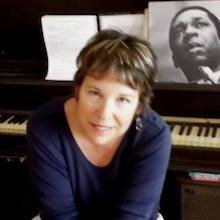
Since there were no rules on the books governing short-term rentals in Collingswood, Cloud sought a zoning variance.
The zoning board unanimously said no. The rationale: They can’t vote for it since there are no ordinances on the books to amend even if they wanted to.
“When we had a meeting with the mayor, he said they don’t want boarding houses,” she recalled. “What’s happening in Collingswood and happening in a lot of towns is that people have stereotypes about what Airbnbs are. They’re comparing it to tourist places, worrying about college kids coming for Spring Break. Nobody is coming to Collingswood for Spring Break.”
At that hearing, she cited history – dating back to the days of the Great Depression – that saw an influx of boarding houses because “that’s what people do when they’re financially stretched.”
Still, in November 2017, she received a cease-and-desist order, which meant she could no longer host “elderly people who moved to Florida but come back on holidays to visit their families, medical students doing monthly rotations or people bringing family members to town when they have wedding or new babies.”
“They singled out two single women. We live in our homes. We’re not the absentee landlords that they’re worried about." – Christina McLean
“It’s very family-oriented. I live here,” the 61-year-old said. “There’s no way I’m going to let people throw beer cans out the windows, but that’s the image that (Mayor) Jim Maley and (Commissioner) Joan Leonard have in their heads.”
What she’s hoping will still happen is that the borough commissioners hear out her and other hosts and enact an ordinance to accommodate them.
“Otherwise, I might have to move out,” she said. “They’d be kicking me to the curb since I’m older and not bringing in the same money. I think it’s despicable. What they’re trying to do is turn Collingswood into a virtual gated community. It’s not right. It’s not like it was when we moved here.”
To Cloud, it’s about a municipality evolving.
“They’ve got to grow with the town and move along with the times. Kids are getting hammered with tuition bills, especially medical students. (Room and board) costs a lot of money that they don’t have. Hotels are expensive, especially for someone on a month-long rotation. This is a way for them to do it,” she said. “(The officials) aren’t being open-minded and humanistic about it. This used to be progressive town. We want to keep it that way.”
Among those who have Cloud’s back is fellow "super host" Christina McLean, who operated an Airbnb a few blocks away on West Collings Avenue.
McLean, too, received one of those cease-and-desist orders which warn of $1,000 fines and/or 90 days in jail and/or 90 days of community service each day they’re in operation.
Christine McLean (right) with a medical student who rented a room at her home via Airbnb in 2017.
She said she was an easy target for borough officials who are scouring Airbnb ads and, when they recognize hosts they know personally, shut the operation down.
She cited historical trends along gender lines.
“It’s important to bring up how women have historically hosted people in their homes, that it’s not a new thing,” she said. “Widowed women would always rent rooms out. (In the past), they were called lodgers.”
Her chronological ties to Collingswood don’t run as deep as Cloud’s. Her dad bought her the home in 2004 when she was in her 20s. The whole “get married and have kids” thing never happened so renting out rooms became a feasible option.
In the time since, she ran Green Heart Environmental Shop on Haddon Avenue, worked with Leonard to found the borough’s “green committee” and worked to bring bicycle sharing and a community garden to town.
“They singled out two single women. We’re not the absentee landlords that they’re worried about." – Christina McLean
She started renting in 2011. Around 2014, she shifted toward Airbnb customers in a home with limited neighbors living nearby. Like Cloud, medical students were a large part of her clientele.
After Cloud’s zoning hearing in May, she decided not to follow through with her own hearing. Their shared attorney didn’t see a different decision arriving.
She had to cancel future reservations, include one for a parent coming to town to see a child compete in a Cooper River regatta and another was the parent of a resident who just had a baby.
She said the borough is having a hard time tracking down Airbnb hosts they don’t know.
“They singled out two single women. We live in our homes. We’re not the absentee landlords that they’re worried about (Airbnb attracting),” she said. “They’re singling out females because they know us from being volunteers in town. They knew who I am so when they saw my ad. It was easy to find me.”
After having met with the mayor about the matter, McLean doesn’t hold out much hope of success. A “fear-based lifestyle” doesn’t leave much room open for swaying opinions, she inferred.
“Nothing will convince him,” she said. “He’s not open to hearing anything after we provide answers for his reasons of concern.”
She hoped the borough would work with them to write new a home-sharing ordinance, but was met with the age-old fears of Collingswood devolving to a borough with concerns about duplex density. They even offered proposals of room and occupancy taxes to no avail.
“I think they’d rather just ignore us. They don’t have anything scheduled (by way of a vote). We just have to work behind the scenes now,” said McLean, who has to remove her name from the deed in order to rent her property via means other than Airbnb. “Does the mayor fear that Airbnb will threaten his legacy? He shouldn’t be putting his legacy before the residents.”
Attempts to speak with Maley and Leonard late last week were unsuccessful; the latter didn’t respond to an email, while the former noted via email that he was out of town and unable to talk.
But both officials are on the pubic record with the staunch opposition cited by Airbnb hosts.
Maley hearkened back to the late 1990s when single-family homes evolved into boardinghouses or duplexes.
“Mom raised five children in a big house. They all grew up and left town. Her husband passed away, and the only way she could stay in her house was if she rented out rooms, like a boardinghouse, or turned the house into a duplex,” Maley was quoted as saying in the local Retrospect newspaper.
“She lived on one side, she rented out the other," he continued. “It became there was a problem duplex on almost every block in town. The bottom line is, I don’t want to see single-family homes used for rental businesses.”
For her part, Leonard saw it as a “slippery slope” in which Airbnb properties become multi-family residences.
“This snuck up on us, and we worked really long to reduce overcrowding in single-family neighborhoods, to try to help triplexes and duplexes convert to what they were meant to be,” Leonard said, according to NJ Pen. “I know that people using AirBnb appreciate coming into neighborhoods, but I don’t know that the neighbors and the neighborhoods around it appreciate it.”
Since Cloud, McLean and others need two out of three commissioners to back their stance, things aren’t looking good for an Airbnb revival in Collingswood.
Commissioner Robert Lewandowski
In an interview with PhillyVoice, he was quick to point out that Airbnb is being used as shorthand for an issue focused on "short-term rentals" overall.
Confirming the process that the Airbnb hosts described, he said that cease-and-desist orders were a direct result of rules set forth by the zoning code.
Lewandowski conceded that he's in the board minority, but he takes a positive outlook.
"I think there's a path toward allowing this," he said. "There are real concerns of things you have to deal with, things we've seen in other towns and don't want situations like that here. But, this does work in other places, too."
He offered some potential compromises. That it has to be the host's primary residence so as to avoid the plague of absentee landlords. That you can rent for no more than 90 days of the year.
"The mayor has been a commissioner for 30 years and Joan Leonard for 20 years. They saw (Collingswood) when it was a struggling place and helped turn a lot of it around by pushing back against absentee landlords," he said. "It takes two (commissioners) to (approve any changes), though, and I hope to continue that discussion."
Lewandowski hearkened back to a time, some 25 years ago, when municipalities were worried about the impact of home offices in their communities. But, the times have changed and home offices didn't lead to "people and UPS trucks showing up at all hours."
The evolution of American economy (both shared and gig) speaks to how technology has impacted society "and short-term rentals is part of that." That statement came with a caveat, though.
"If someone wants to rely on short-term rentals to create their sole income, I would argue that they shouldn't be in Collingswood," he said, noting that safety is his primary concern, something he would leave to public safety officials.
As for what he thinks may come of this unique battle, Lewandowski mirrored the uncertainty of everyone who talked about it.
"What it really comes down to is that I think there's a path to make this happen but now, I have to convince others of that. That's what democracy is all about," he said. "Short-term rentals are the panacea to some problems, but not the answer to all of them.
"We'll try to cobble things together. I don't know (what the chances of success are), but I'll show options to my colleagues."
In the meantime, Airbnb hosts like Cloud and McLean will be left waiting to hear whether they'll be able to re-open their doors to future guests.
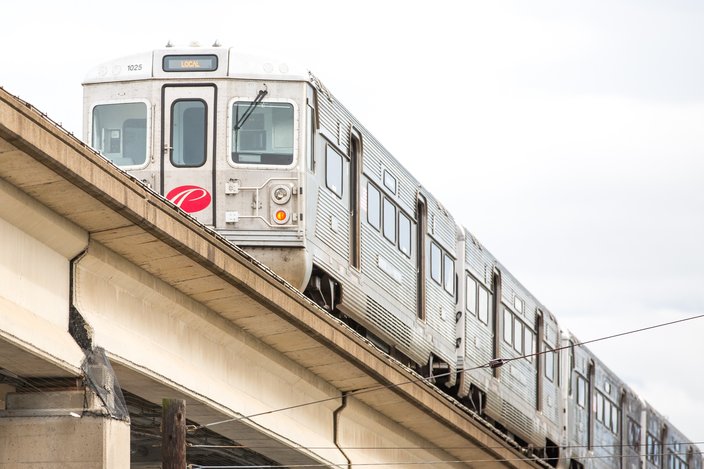 Thom Carroll/PhillyVoice
Thom Carroll/PhillyVoice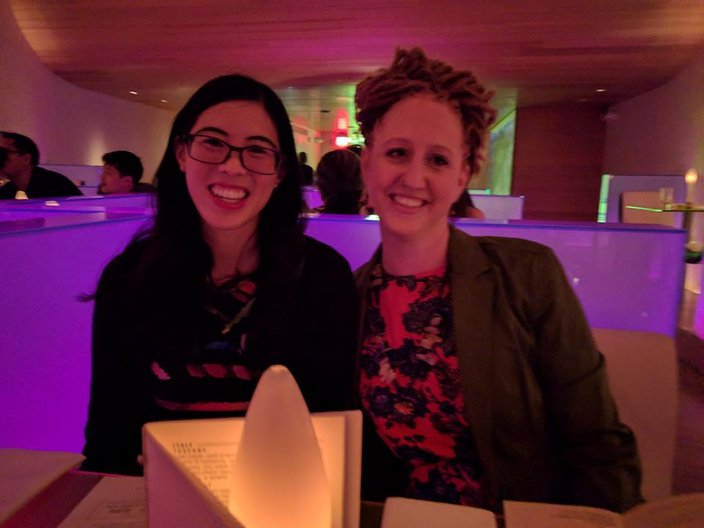 Courtesy /Christine McLean
Courtesy /Christine McLean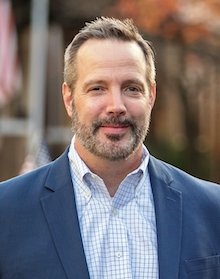 Courtesy /Collingswood.com
Courtesy /Collingswood.com